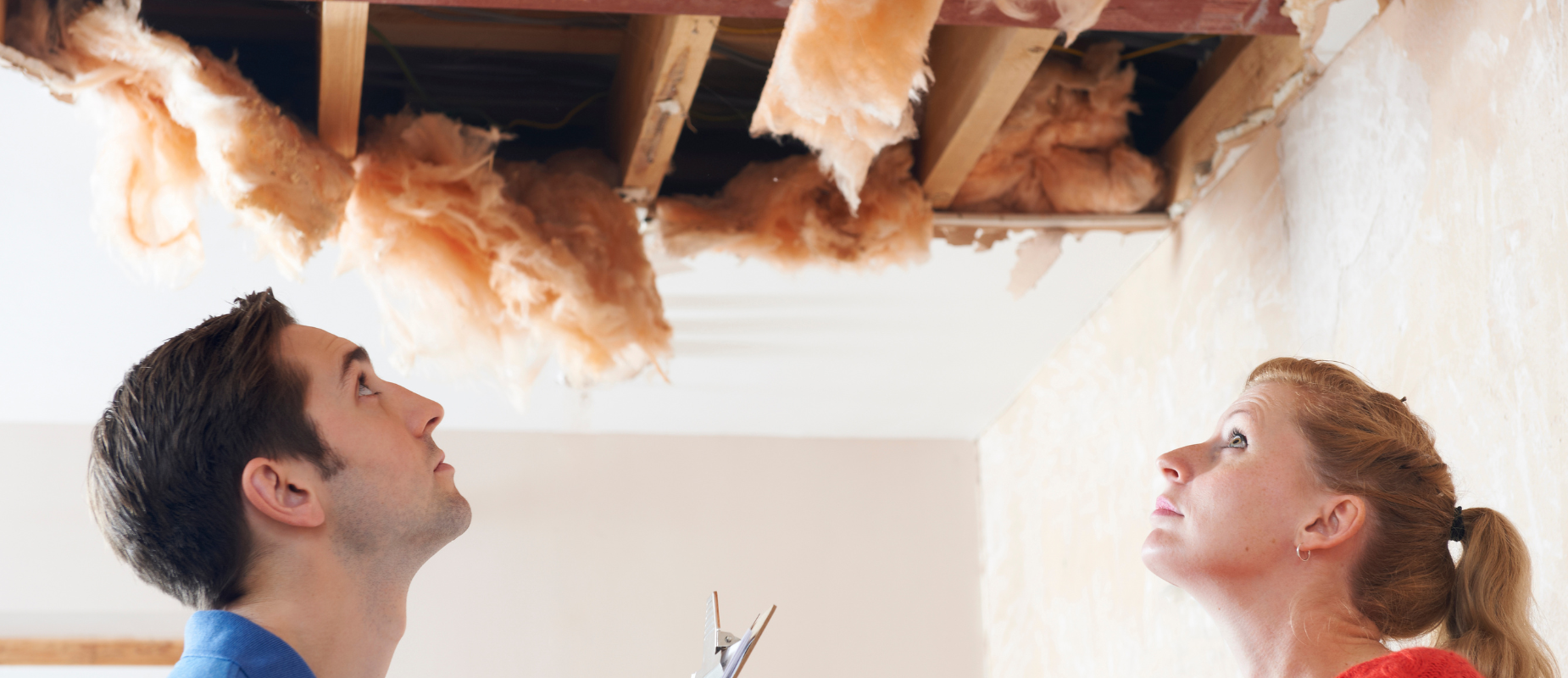
Tenant Damage To Property In Illinois
What Constitutes Tenant Damage?
In Illinois, tenant damage means any change to the rented unit that goes beyond normal wear and tear. Think of big scrapes, cracks in doors, and plumbing that fails because of misuse. Everyday signs of living, like fading carpet or surface nicks that age, don’t count. A tenant is responsible for any part of the unit that is visibly and materially impacted by their actions.
Tenant vs. Landlord Responsibilities
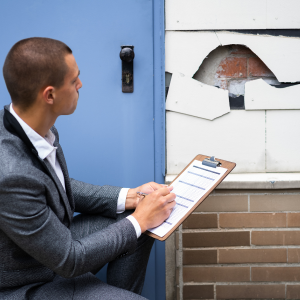
Dealing with tenant-related damage does not rest solely on tenants and landlords. Illinois law pinpoints actions that each party must take. Tenants must maintain cleanliness, promptly notify landlords of any problems, and pay for the repairs linked to their use. Landlords in turn must maintain the structure in a safe condition and take care of upkeep that is not prompted by tenant mismanagement. Knowing the boundaries keeps disputes in check and creates smooth communications.
How Does Illinois Law Address Tenant Damage?
Illinois law sets rules for handling tenant damage in 2023, making it easier for everyone involved. The rules decide who pays for repairs and outline the court process in case of disagreement. For example, landlords may use the tenant’s security deposit for repairs, but they must first document the extent of the damage. Familiarity with these requirements helps both tenants and landlords resolve problems before they escalate.
Legal Consequences of Tenant Damage
Potential Legal Actions for Property Damage
If damage occurs, landlords can file a lawsuit. Small claims court is a common choice in Illinois for reasonably priced repairs. Tenants may need to pay fees or negotiate a settlement to cover the charges. Knowing these options helps landlords act in a timely and appropriate manner.
Understanding Tenant Liability in Illinois

In Illinois, tenants are responsible for damage they cause. They must either repair the damage or pay for the fixes that restore the property to its earlier condition. Landlords routinely confirm tenant awareness of these rules in lease proposals, and tenants who know the guidelines can avoid legal issues.
Steps Landlords Can Take to Seek Compensation
To successfully claim repair costs from renters, landlords should follow these practical steps. First, capture the damage with clear photos or video. Then, assess the extent of the harm to calculate the amount to withhold from the security deposit. If the deposit does not cover the costs, landlords might need to pursue judgment through small claims court or consider mediation to recover the remaining expenses.
Understanding the corrective process benefits both renters and landlords and helps everyone follow the lawful steps without misunderstanding, creating a smoother leasing process throughout Illinois.
How Can Landlords Mitigate Tenant Damage?
Preventative Measures for Protecting Rental Properties

For landlords, safeguarding the rental property from tenant infliction starts well before the initial lease signing. Familiarizing yourself with state and local damage statutes lets you outline and enforce sensible expectations. Follow these proven strategies to lessen future risks:
Check Tenants Well: Vet every applicant with a full tenant background check, touching on rental history, credit reports, and previous landlord feedback, to gauge responsible living habits.
Clear Lease Agreements: Draft and present leasing documents that itemize tenant maintenance obligations. Spell out which actions constitute damage to clarify accountability and minimize surprises.
Are Security Deposits Sufficient?
Illinois landlords often count on security deposits to offset costs when a tenant fails to maintain the unit, yet a single deposit rarely covers the full scope of possible repairs. Evaluating the adequacy of these funds is therefore essential.
Deposit Amounts:The maximum a tenant can be required to pay is often not enough encounter incidents of wide-ranging repair. Gain a clear understanding of both prevailing statutes and customary tenant damages to arrive at a deposit level that tracks the paperwork.
Property Damage Liability: The landlord insurance on the residence might not be enough; explore supplementary insurance for tenant damage liability to close potential coverage gaps.
Effective Use of Lease Agreements
No document is more self-protective than a finely crafted lease.
Include a Damages Clause: A damages clause is not boilerplate; it should specify repair expectations, limits, and costs the tenant will assume.
Tenant Accountability: Make clear that the tenant and any sub-tenants are contractually bound to maintain the unit; such clauses increase the chances of compliance.
Tenant Damage Assessment and Documentation
How Should Landlords Document Tenant Damage?
What is the best practice for landlords?
Photographic Evidence: Take clear photos at move-in and move-out. Keep each set on cloud storage to compare and justify vacancy repair invoices.
Damage Reports: Use periodic damage surveys and issue condition reports that summarize damage.
Importance of Accurate Damage Reports
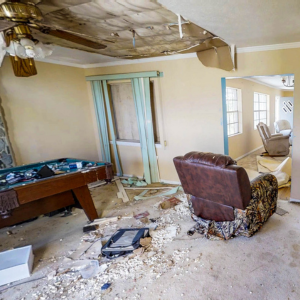
Photographic evidence is important, yet the written report is key when comparing tenant damage. Ensure the damage report captures the condition before move-in, any current events affecting that unit, and what assessment the lease allows. The best evidence stems from proactive diligence on the landlord’s part.
Thorough Assessments: Look for all issues during damage assessments.
Recovery Process: In Illinois, having precise documentation supports the recovery process and legal actions if needed.
Utilizing Photographic Evidence
Visual records stand as compelling corroboration in arguments over tenant-caused damage.
Proof of Damage: Images distinctly frame the state of damage and guide decision-makers.
Documentation Process: Update your files regularly—add fresh photos each time the property’s state changes.
Financial Implications of Tenant Damage
Damage inflicted by a tenant typically triggers sizeable losses to the property owner. A dented wall, a burned countertop, or a shattered door may translate to declining resale potential, and the owner may face unplanned repair charges. Keeping current on how these situations influence the property value, examining the appropriate insurance, and investigating reimbursement options weigh heavily on the responsible property owner in Illinois.
How Does Tenant Damage Affect Property Value?
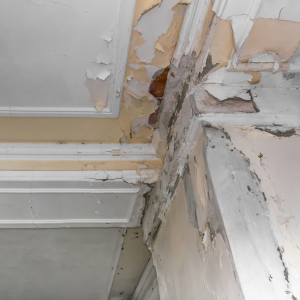
When a tenant inflicts harm, several areas of property value come under pressure. A shattered window or a significant stain on the carpet may later repel buyers, driving asking prices lower. Left unattended, the cost of restoring the property grows and may eclipse normal turnover expenses. Keeping records to capture the state of your property helps to guard against further losses during recovery.
Insurance Options for Property Owners in Illinois
Property owners in Illinois have plenty of insurance options to choose from. A landlord policy is essential for covering damage caused by tenants. This insurance safeguards against income loss linked to tenant-initiated harm and other customary rental hazards. To find the right coverage, shop several offers, comparing limits and exclusions to make sure your rental is adequately protected.
Recovering Costs from Tenants
Collecting costs for tenant damage can be tricky, but it’s possible. Landlords can pursue bills directly from tenants, provided the harm is traceable to negligence. Keep thorough photographs and receipts. It’s wise to insert clauses in leases that clarify a tenant’s financial liability for abuse, which can create a stronger deterrent and warn renters of wage-attachments if a claim is filed.
Common Causes of Tenant Damage in Rental Properties
Understanding which tenant behaviors cause the most damage can guide landlords in reducing claims. Common problems stem from careless use of appliances, postponed maintenance, or improper storage. Each source calls for a distinct dialogue: for equipment misuse, offer training; for maintenance, enforce mandatory inspections; for storage, suggest favorable layouts that shield vulnerable surfaces.
What Are the Most Frequent Types of Damage?
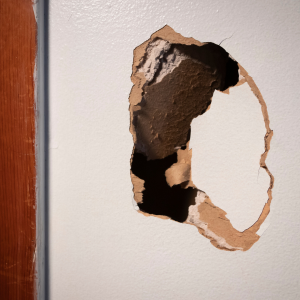
The most common requests for repairs reveal a few usual suspects:
Light fixtures that ended up scratched or broken, leading to replacement.
Doors or walls marred, marked, or punctured more often than you’d expect.
Streams of water from a slow leak that turn to spots on ceilings or warped cabinets.
Areas of carpet or sections of vinyl that somehow absorbed stains or tears.
Knowing these patterns helps you know where to look first when a tenant plans to move out.
How Do Accidents Differ from Negligence?
An accident might occur when, for example, a kid drops a toy on a glass-top stove, while negligence shows up when the tenant lets a faucet drip and salt stains speckle marble. Differentiating these scenarios lets owners decide how much of the repair bill can fairly land on the tenant, if at all. Clarifying intentions lets owners limit liability to repairs that truly are necessary.
Tips for Identifying Warning Signs Early
Identifying damage before it spirals keeps turnover costs from spiraling, and there are simple habits that help catch issues:
Walk through each flat at least once a year, more often on contracts where turnover usually follows quick.
Chat with residents regularly about routine maintenance and how to alert you sooner about leaky faucets or running toilets.
Hop on evidence like dark rings, musty air, or tiny droppings to intervene before infestations or mildew sets in.
Through these proactive strategies, you help the building appreciate and keep expenses predictable. Good property managers persuade renters to act responsibly while repairs, and avert later headaches.
Strategies for Resolving Tenant Damage Disputes
Illinois landlords wrestling with tenant damage disagreements can find relief by following proven tactics that blend awareness of state laws with practical negotiation skills.
Negotiating with Tenants: Best Practices
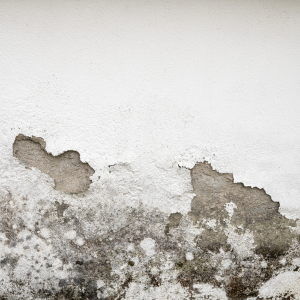
When damage crops up in rental property, open dialogue usually yields the best results before arbitration becomes necessary. Landlords benefit from a thorough grasp of the Illinois Residential Tenants’ Right to Repair Law and warranty of habitability to frame conversations accurately. At the first sign of conflict, engage tenants without delay. Speak calmly, use neutral, clear language, and encourage them to share their perspective. Aim for compromise; for example, if repair costs exceed the tenant’s budget, the landlord might propose manageable monthly installments. Keep conversations and any subsequent agreements in writing to track commitments and protect against miscommunication when the situation escalates in court.
When to Consider Mediation or Legal Action
Sometimes, talking isn’t enough to resolve conflicts. Mediation can help. It entails a neutral third party who assists both sides in reaching an agreement. It’s usually faster and cheaper than going to court. However, if the damage disputes are not resolved, legal action may be necessary. Make sure you have all of the essential documents ready. Learn how to file a case in an Illinois court so that you are prepared.
How to Avoid Escalating Conflicts
Keeping disagreements from escalating is critical for successful landlord-tenant relations. Knowing tenant rights in Illinois allows landlords to stay within the law and avoid avoidable problems. Clear communication is essential; speak with tenants on a regular basis to address minor issues before they become major ones. Use de-escalation strategies such as listening quietly and resolving misunderstandings promptly. These measures contribute to more calm living environments.
Tenant Education and Communication
Teaching tenants and communicating well are vital parts of managing property successfully. They help make sure everyone knows what to expect and reduce misunderstandings.
Why Is Tenant Education Important?
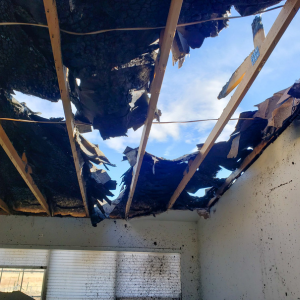
Tenant education teaches renters about their rights and duties under Illinois tenant laws. Informed tenants typically observe the rules and care for the property. Teaching tenants about lease terms, maintenance, and their responsibilities might help to avoid disagreements. It also enables them to make informed decisions, which benefits both tenants and landlords.
Effective Communication Techniques with Tenants
Clear communication strengthens landlord-tenant relationships. Regular check-ins, bulletins, and announcements keep tenants up to date on vital news. When explaining legal concepts and policies, use straightforward language. Share contact information for fast questions. Good communication helps to resolve problems promptly and pleasantly.
Resources Available for Tenants and Landlords
Tenants and landlords in Illinois have numerous resources at their disposal. The Illinois Housing Development Authority keeps residents up to know on changes to rental laws. Legal aid organizations assist low-income people with tenancy difficulties. Advice on local housing rules is available through community seminars and internet platforms. Using these materials improves the landlord-tenant relationship, keeping both parties informed and supported.
Landlords may effectively manage tenant damage disputes and promote a positive renting environment by implementing these methods and remaining open to conversation.
Repair and Maintenance Responsibilities
What Repairs Are Tenants Responsible For?
Tenants in Illinois are responsible for maintaining their rented homes. They should keep them clean and make minor repairs, such as replacing light bulbs or smoke detector batteries. If a tenant damages anything because they were not careful, they must repair it. This could include mending holes in the wall caused by hanging pictures or shifting furniture. Check your lease agreement for a complete list of tenant responsibilities in Illinois.
Landlord Obligations Under Illinois Law
Landlords in Illinois must observe specific rules. They must ensure that the rental residence is safe and livable. This includes fixing the building’s construction, plumbing, and electrical systems. Landlords are also responsible for pest control and providing heat and hot water. Knowing Illinois’ landlord-tenant legislation helps everyone realize what needs to be done.
Coordinating Repairs After Tenant Damage
If a renter damages the property, the landlord and tenant should discuss how to repair it. The landlord may make the repairs, but if it was their fault, the tenant may be required to pay. It is crucial to speak clearly. Landlords should document the damage and work with the renter to schedule repairs. Following Illinois property maintenance rules will ensure that repairs are completed correctly. Landlords may want the assistance of a professional when it comes to damage recovery.
Future-Proofing Your Rental Properties
How Can Landlords Prevent Future Damages?
To prevent property damage, landlords should teach tenants how to take care of their dwellings. Providing clear instructions on how to operate equipment and avoid difficulties might be helpful. Regular inspections can detect problems early, making real estate investments safer.
Investing in Durable Fixtures and Fittings
Choosing durable fixtures and fittings might help a rental property survive longer. Strong counters, robust flooring, and high-quality faucets are excellent selections. Durable materials require less repair and replacement. Focusing on property conditions in Illinois saves landlords both time and money.
Reviewing and Updating Lease Agreements Regularly
Both landlords and tenants benefit greatly from regularly reviewing and amending lease agreements. A clear lease agreement in Illinois specifies what each party is responsible for, including property maintenance and repair. Landlords may impose regulations for maintaining the property’s appearance. Updating the rental agreement ensures that it complies with current legislation and any changes in how the property is administered.
By following these guidelines, landlords can better manage maintenance duties and reduce future hazards, resulting in a better rental experience for all parties involved.
FAQs:
What are the hidden costs and consequences of tenant damage to rental properties in Illinois?
Tenant damage can cost landlords money for repairs and might also mean losing some rent. If the damage isn’t fixed, it could lead to problems and legal actions, which can take up time and resources from both sides.
Are renters responsible for damages caused by their guests or pets in Illinois?
Yes, in Illinois, renters are usually responsible if they, their guests, or their pets cause any damage to a rental property. Knowing this is important for tenants to avoid surprise costs.
How can landlords seek compensation for tenant-caused damage in Illinois?
Landlords can get compensation by keeping part of the security deposit, going to local municipal court, or asking a property manager to help solve the issue.
What steps should landlords take to prevent tenant damage?
Landlords can screen tenants carefully, ask for a security deposit, and write clear rules in lease agreements about what tenants must do. Checking the property often can also help find problems sooner.
How should tenants handle accidental damage to rental property?
If a tenant accidentally damages the property, they should tell the landlord right away and work with them to fix it. Talking openly makes sure repairs are done fast and avoids problems later.
What constitutes normal wear and tear versus tenant-caused damage?
Normal wear and tear means things getting a little worn out from regular use, like faded paint or old carpet. Tenant-caused damage means more serious harm, like broken windows or big stains, which is not normal.
What rights do Illinois landlords have if a tenant refuses to pay for damages?
Landlords in Illinois can take repair money from the tenant’s security deposit or sue in small claims court. Knowing landlord-tenant laws helps handle these situations properly.
What are the benefits of renter’s insurance in Illinois?
Renter’s insurance helps protect tenants from losing money if there’s damage or theft. It covers personal belongings and might also cover tenant-caused damages.
Key Insights
• In Illinois, landlords can address tenant damage through local municipal courts. It’s important to know the hidden costs and financial losses if tenants are negligent or cause harm.
• Tenants are responsible for the damage they, their guests, or pets cause to rental properties. Landlords may recover repair costs from security deposits if damage goes beyond normal wear and tear.
• Illinois tenant laws say renters should report any accidental or intentional damage right away. Not maintaining property standards might cause lease violations or eviction.
• Both landlords and tenants must understand the impacts of tenant damage, including effects on property value and landlord insurance claims.
• Handling tenant disputes and damage recovery needs clear evidence and good documentation. Landlords should have a plan to manage responsibilities and solve problems quickly.
• Security deposit deductions must follow Illinois rental laws, with tenants getting an itemized list of damages within 30 days after moving out.
• Illinois landlord obligations include keeping rental units livable, while tenants must keep up with cleaning and maintenance duties.
• For big or costly damages, landlords can file claims in Illinois small claims court or pursue tenant damage cases.
• Knowing Illinois rental agreement rules and damage checking helps both parties handle disputes well and ensure financial responsibility.
• Getting help from property managers or contractors may be useful for serious or widespread property damage caused by tenants or their guests.
This information applies to Illinois and its cities, including Chicago, Fox Lake, and Hickory Hills. For assistance or questions, please call us at (773) 305-6373. You can also visit our website at Illinois Real Estate Buyers for more details.

